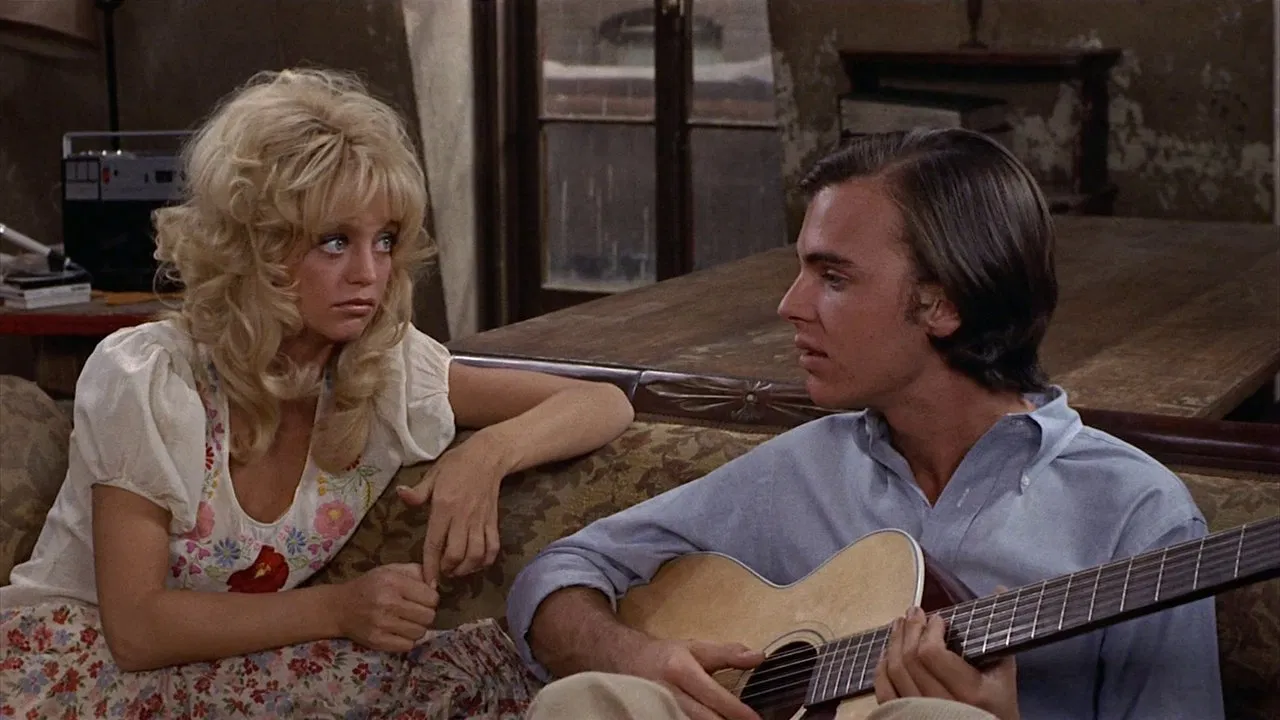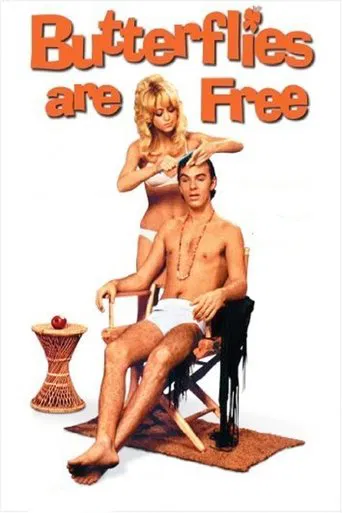Pacionsbo
Absolutely Fantastic
Beystiman
It's fun, it's light, [but] it has a hard time when its tries to get heavy.
Payno
I think this is a new genre that they're all sort of working their way through it and haven't got all the kinks worked out yet but it's a genre that works for me.
Bob
This is one of the best movies I’ve seen in a very long time. You have to go and see this on the big screen.
SnoopyStyle
Blinded since birth, Don Baker (Edward Albert) has a place in San Francisco. It's the first time he's living away from his overprotective mother (Eileen Heckart). His free-spirit neighbor Jill Tanner (Goldie Hawn) visits and is surprised by his blindness. She's a 19 year old aspiring actress divorcée. They get together and then his mother visits.Goldie Hawn is the definition of free-spirit IT girl. It's a fine pairing that heightens when they are joined by Heckart. Her entry just elevates the humor to another level but it becomes more than a comedy. Goldie takes a turn that takes the story into good emotional drama. Heckart rides this roller-coaster role. This has a bit of characters-stuck-in-a-room feel from its source material as a play. Nevertheless, these are compelling characters.
vzetznk
I agree with some of the other comments, it's obvious this was written as a stage play, because the film plays the same way. If you're able to get past the dated aspect of the accoutrements (it's replete with late 60s early 70s time-stamping), which you should be able to do considering how good the dialogue is, it's really a terrific piece of work. All roles are extremely well-written and well acted. Very real, in the truest sense.The dialogue is extremely witty, yet equally natural, and scarcely any filler is present. The premise itself is weighty and important. A blind man fighting for independence from his overprotective mother, whom we later learn did everything she did, including the children's stories she wrote, out of maternal love and desire to help him.The character Jill helps the mother to see that she has "overdone her job" and it's now time to let her work (her son) takes on a life of its own. She realizes this to such a degree that when Jill walks out on her son, and in an emotional moment of turmoil he relents his desire for freedom and concedes to go home with his mother, she doesn't let him. She finally really gets it.This work abounds with powerful human moments. It never feels forced, preachy, or artificial. Just powerful. It's a story wherein the three principal characters all grow and learn. What else is there in life?
bkoganbing
This film version of Leonard Gershe's Butterflies are Free which ran for 1128 performances on Broadway from 1969 to 1972 transfers the location from Greenwich Village in Manhattan to the hippest areas of San Francisco circa the Seventies. Eileen Heckart and Paul Michael Glaser, later Starsky on Starsky&Hutch retain their original roles.Replacing Keir Dullea and Blythe Danner in the leads are Edward Albert and Goldie Hawn. This was Edward Albert's film debut and Hawn was following up the Oscar she won for Cactus Flower. Both of them fit their parts perfectly.But I can hardly see anyone else in the role of Albert's overprotective Mama than Eileen Heckart. Though she's only in the film in the second half, Heckart really dominates the proceedings. So much so she got an Oscar for Best Supporting Actress that year. Heckart also avoids the usual stereotyping as the mom, but she does register real concern for her kid going out in the world.Edward Albert is her twenty something son who is trying to break free from his mom and is now living in an apartment that has a connecting door to the next apartment which is occupied by free spirited hippie chick, Goldie Hawn. Of course the key here is that Albert is blind, blind from birth. They develop into quite the romance that Heckart tries to break up.Do love Goldie's fashion sense. See the episode where she takes Albert out of the apartment and clothes shopping. Remember those seventies fashions? Straight off the rack or the body of Barry Williams as Greg Brady.
gpburdell
I really enjoyed the movie, but one thing I noticed and appreciated was the long shots. Modern movies usually are changing angles and context every few seconds; while like a play, this movie will hold a shot for minutes at a time. I think it shows the strength of the actors, while most contemporary movies can mask poor acting with editing. This is especially true towards the end of the movie, in the scene where Don and Jill confront each other's feelings. I was amazed at how Goldie was able to hold the emotion of the scene and keep me drawn in for such an extended period. I've never been a big Goldie fan, but I had never seen this movie until recently. I have to say this movie changes my opinion and makes we wonder what other films of hers from this period are like.

